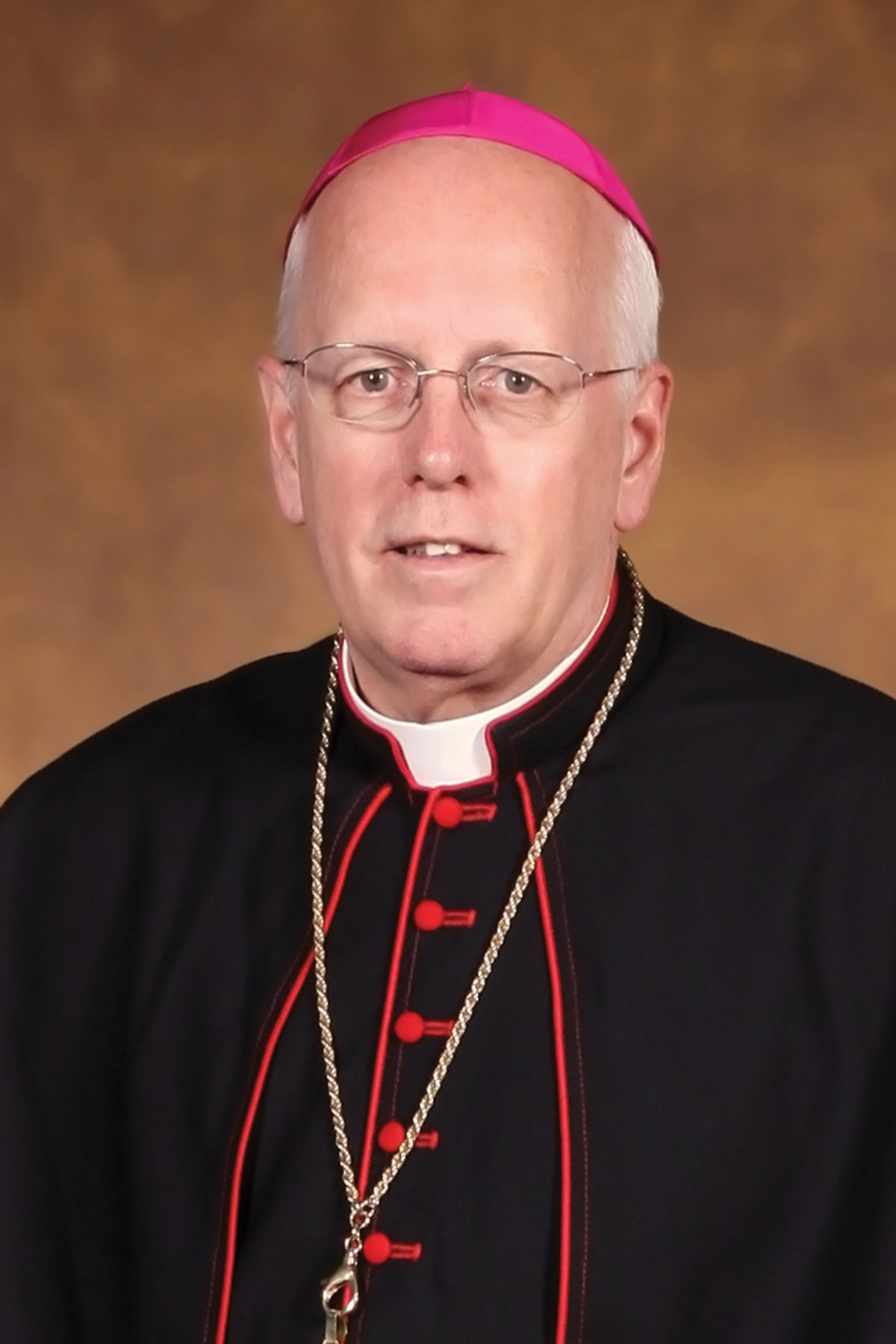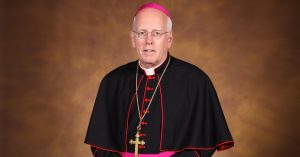
With the national and state elections in the offing, below is an edited version of a statement I issued in 2012 which is as applicable today as it was four years ago:
We are in the midst of one of the most contentious elections in memory, as the screaming ads and commentators attest. Through seemingly every media outlet, we are inundated with information that is colored by personal attacks or by dooms-day portrayals of one ideology over another.
Many news stories based upon opinion are instead presented as fact. It is reflective of the level of civility in our culture that has been deteriorating for some time. The Church has not been immune to such incivility as my mail and personal encounters at times attest. We will not fall to that sinful level if we keep in mind Catholic moral and social teachings in their fullness.
The Church’s teaching does not nicely fit into any party or candidate. The Church is not just another special interest group though some seek to reduce Her to that. Our purpose is not winning elections; our purpose is to give glory to God and seek the salvation of souls, our own and those of our brothers and sisters. There are many candidates and groups that share the Church’s teachings on some issues and do not on others. There also are some groups who call themselves Catholic who do not uphold the Church’s teachings.
Therefore, no bishop or priest or deacon in our diocese should publicly endorse candidates. Parishes also must not provide an environment for campaigning. Each parish is a house of prayer for all. That is why political buttons and other advertisements for particular candidates ought not be displayed in church, especially by those ministering in some capacity. That is also why only materials approved by the Bishops Conference or the diocese may be made available.
However we bishops are compelled to speak out in the name of Christ on core values in order to educate and form consciences and to seek to defend the common good and the stability of society. In so doing, we expect Catholics and invite other voters to take these teachings into account so that appropriate choices are made not just on Election Day, but every day. They are not just another opinion, one among many, but the truth that comes from Christ. They apply not only in our country but in every country.
Core to these teachings is the inherent dignity of every person gifted by God with life. This includes the recognition that every person is due respect including those with whom we may disagree. This is a respect that flows from our call to love God first which is reflected in loving one another even those who are the hardest to like. As members of the Church, we have the opportunity to raise the bar on civil discourse by example.
Prayer is an essential and powerful part of our efforts to restore civility and to defend truth. In prayer we are strengthened, nourished, guided and given hope.
Key to the Church’s teachings about public life is that it is the laity, not the clergy, who are to be active in the public square. The US Bishops’ document “Forming Consciences for Faithful Citizenship.” is an excellent guide for the laity to assume their rightful role. It details the essential elements to which Christ and His Church call us and is written in a way that respects everyone’s intelligence. No sound bites or catchy slogans are offered, only the truth based on faith and reason. It sets forth the moral and personal challenges before us in the areas of human life, family life, social justice and global solidarity. The document is posted on the diocesan website for your review at www.sfcatholic.org.
“Forming Consciences for Faithful Citizenship” reminds us that there are two categories of moral issues about which every Catholic has the duty to form his or her conscience: The first are those that are intrinsically evil. These relate to the intentional taking of or disrespect for human life. Examples may include abortion, euthanasia, assisted suicide, human cloning, in vitro fertilization, embryonic stem cell research, artificial contraception, redefining marriage, death penalty in most circumstances, genocide, torture, racism, targeting of noncombatants in war, restrictions on religious liberty and freedom of conscience. These ought never be compromised.
The second are those serious moral questions that are responded to with moral principles which in themselves may not be compromised. How to achieve them, however, is left to prudential judgment, which includes thoughtful consideration of implications and possibilities. Examples may include the preferential option for the poor, fiscal policy, adequate health care and housing, basic education, immigration, stewardship of the environment, just war and the defense of the nation. In seeking solutions to them both the good of individuals and the common good ought to be considered. To these we can apply the wisdom of the Catholic teaching on subsidiarity and solidarity. Persons of good will can differ on how to respond to specific proposals in these areas as long as the core principles are respected.
Every person is gifted by God with free will which allows us to make choices. Choices have consequences. Each of us ought to seriously ponder the truth that every free act of our will is subject to the just judgment of God. Jesus said, “For what will it profit a man if he gains the whole world and forfeits his soul? Or what will a man give in exchange for his soul?” (Mt. 16:26)2 We will all be held accountable for the choices we make in all aspects of our lives.
As we steel ourselves for the colorful and graphic ads and the stirring and simplistic language of campaigning, let us keep perspective and recognize that both what is intrinsically evil and those serious moral questions that need to be attended will not and cannot be addressed in any one election or by any one official. This achievement will only come with sincere conversion and change of hearts. That is what the New Evangelization is all about. In the meantime, we will need to stay the course no matter the outcomes of this year’s Election Day. The future of our country and our salvation is at stake, so we must be prepared for the long haul and stay the course.
These seem like dark days given the attacks on life and freedom by our own government and the seeming indifference of so many. Winston Churchill proclaimed in the dark days of World War II: “Never, never, never give up.” We will not. We will never give up in standing up for truth and justice as Christ proclaimed. That is what the crucifix teaches in symbol and that is what we proclaim as disciples of Christ. That is our calling and our mission this election season and every day that follows.

